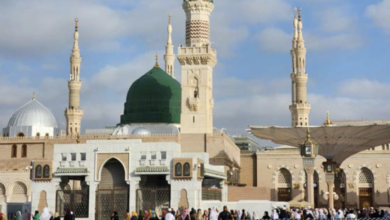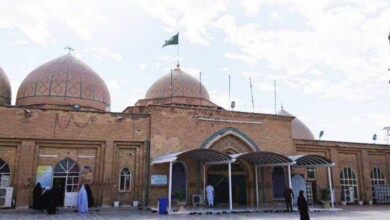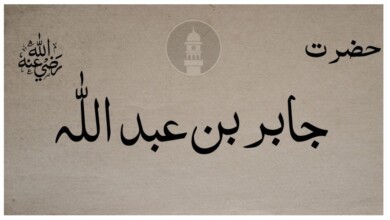The ‘Keeper of secrets’ and the Quran: The legacy of Abdullah ibn Masud
Abu Abd al-Rahman Abdullah ibn Masud was among the first Muslims; he was the sixth Muslim, and he migrated to Abyssinia twice and witnessed the Battle of Badr and the battles and raids with the Prophet Muhammad.
Before his conversion, Abdullah ibn Masud was already renowned for his honesty. While herding sheep for his master, Ibn Abi Mu’ayt, he witnessed a miracle that led him to embrace Islam. He saw the Prophet Muhammad stroke the udder of a barren ewe, causing it to fill with milk. The Prophet then milked it, and he, Abu Bakr, and Ibn Masud all drank from it.
He was among the most knowledgeable of the Companions, renowned as a leading reciter and memorizer of the Quran. The Prophet Muhammad affirmed his status by stroking his head and saying, “You are a taught boy.”
He dedicated himself to seeking knowledge and proximity to the Prophet, diligently studying the Quran. Through this effort, he became a distinguished scholar, jurist, and master reciter.
Abdullah Ibn Masud’s proximity to the Prophet
He attained his great virtue and status through his unparalleled closeness to the Messenger of Allah. He was his constant companion in residence and travel, entrusted with the most personal of tasks—carrying the Prophet’s sandals, his Siwak (tooth-stick), and his pillow. This intimate service was so profound that the Companions themselves testified he was considered one of the Prophet’s own household. He was even nicknamed “the keeper of the secret” for what he concealed of the Prophet’s private counsel.
And so, Allah raised his status and exalted his rank. He was, in fact, the closest of the Companions to the Prophet in guidance and manners. The noble Companion Hudhayfah ibn al-Yaman attested to this, saying, “I do not know anyone closer in manner, guidance, and conduct to the Prophet, peace be upon him, than Ibn Umm Abd.”
The knowledge of Ibn Mas’ud
He received the Quran directly from the Prophet Muhammad, memorising seventy surahs from his very mouth. This connection made him one of the most knowledgeable Companions in both Quran and Hadith. Recognizing his mastery, the Prophet appointed him one of the four primary reciters of the Quran, alongside Ubayy ibn Ka’b, Salim, and Mu’adh ibn Jabal. His recitation was soft and gentle, mirroring the manner of its revelation.
He was considered the foremost authority on the Quran after the Prophet himself, possessing unparalleled knowledge of where each surah was revealed and the context of every verse. Despite his immense knowledge, he was deeply humble.
His beautiful voice, often compared to the buzzing of bees, was frequently heard in prayer and night vigils, filled with a fear of Allah that left two permanent streaks of tears upon his cheeks.
The bravery of Ibn Mas’ud
His frail body and thin legs belied an unshakeable courage. He was the first after the Prophet to publicly recite the Quran in the open areas of Mecca, defiantly proclaiming the opening of Surah Ar-Rahman to challenge paganism. The Quraysh mobbed him and beat him severely, yet he endured it for Allah’s sake, vowing to return and do the same the next day.
His bravery culminated on the battlefield of Badr, where he struck down the very leader of disbelief he had opposed in Mecca: Abu Jahl. It was Ibn Mas’ud who felled him, and Abu Jahl died beneath his feet—a fitting end for a man who stood firm in truth and fought falsehood with every fibre of his being.
Ibn Mas’ud as an Ambassador
The Caliph Umar sent him to Kufa as a teacher, educator, and jurist to narrate hadith and teach the Quran. He taught and influenced others, following the guidance of the noble Prophet in prayer, worship, knowledge, and the Quran.
Abu Abdur-Rahman al-Sulami learned the Quranic recitation from him, followed by ‘Asim and then Hafs, which is the recitation most famous in the Muslim world. He gave beneficial advice that remained timeless, guiding Muslims throughout history.
He disliked trivial and idle people who had no purpose in this world or for the Hereafter. He saw prayer as knocking on the door of the King, and those who knock more frequently are likely to have it opened for them.
The Death of Ibn Mas’ud
In the final days of his life, during the caliphate of Uthman, Ibn Mas’ud was visited by a delegation of companions led by the Caliph himself. Even in his final moments, his concern was not for his physical suffering but for his spiritual state, and his only desire was for Allah’s mercy. He passed away and was buried in Al-Baqi’ in the year 32 or 33 AH.
His death marked the end of a life profoundly blessed through his immense contributions to Islamic knowledge, jurisprudence, and Quranic recitation.




